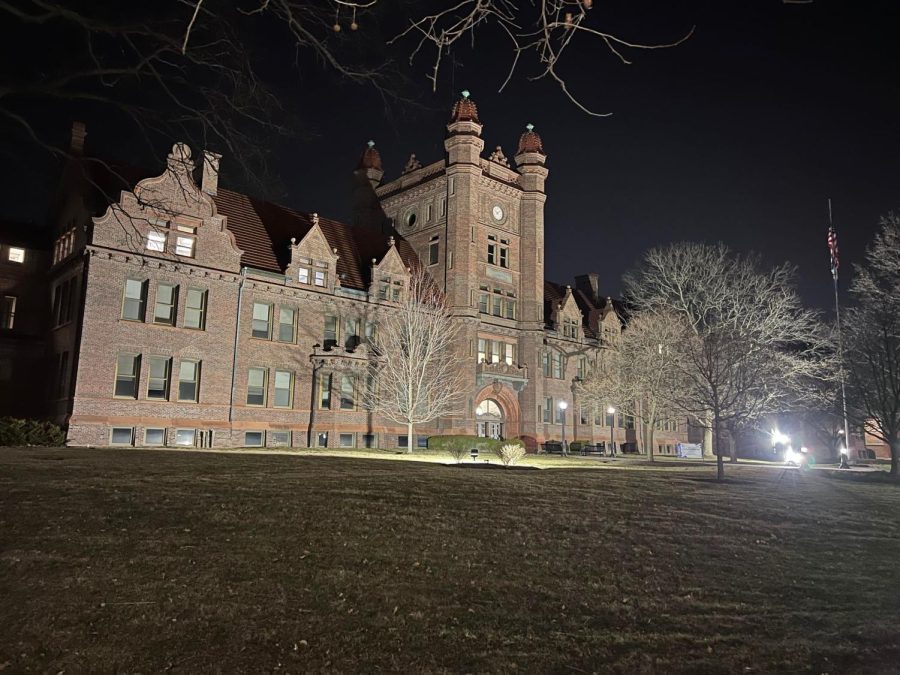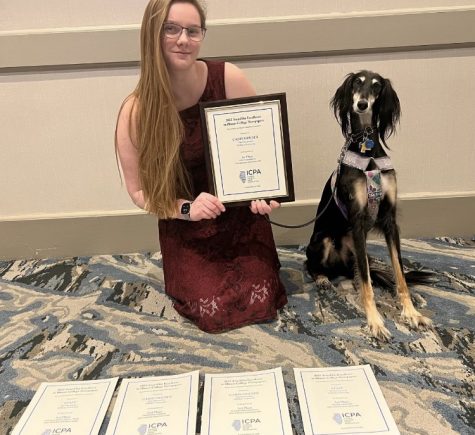Everyone was asleep in the Milli-van with the exception of myself and the Decaturian advisor, Dr. Scott Lambert. We had just attended my last ever Illinois College Press Awards, and I had just stepped down as editor-in-chief of the Decaturian.
“I feel like I need one last big article, something with meaning,” I said to Lambert.
“Well, you could always chase the white whale of the Decaturian,” Lambert said.
The white whale, of course, was an article started before the pandemic.
An editor-in-chief of the Decaturian stumbled across a crucial story for Millikin: food insecurity. The facts about college food insecurity were out there, and so were the students, but no one wanted to talk.
As the time went by, the editor graduated, and the story went unwritten. Then, Lambert encouraged the next editor to write the story, but it simply did not get done.
I remember sitting in his office, while covering financial stringency and assisting in the sexual assault series and hearing him ask another student who had served as the editor-in-chief if she was ever going to get the article written.
She said she would, but the increasing demand for coverage about sexual assault and financial stringency grew, and once again the article wasn’t written.
All-told, three editor-in-chiefs of the Decautrian attempted to research and write the article, but it kept getting put on the backburner due to the amount of time the story demanded.
I joined the Decaturian in 2020. Millikin was online, so joining a club was extremely complicated and difficult. My entire time at the paper I heard about the story, and I watched as editor after editor began working on the story.
I wrote some pretty important stories during my time as editor-in-chief, news editor, and reporter. I was the primary reporter for the Decaturian regarding financial stringency.
Writing about financial stringency gave me a surge of energy each time something new happened. The Decaturian doesn’t have an old-fashioned newsroom, but the late nights and tight time crunches I often found myself in gave me the rush I always imagined the newsroom having.
I spent many late nights on campus pushing a story out by deadline. I vividly remember the relief I felt when I finished the story.
I wanted that to happen one last time. I wanted to cover one last major issue on campus and have a chance to inform the campus of something that is flying under the radar.
That became the white whale Lambert spoke about on that van ride.
Chasing the white whale was a lot of work. I had a few months to get everything I needed, but it was difficult to schedule interviews with everyone, and even harder to find students who would speak to me.
I found myself scheduling interviews weeks out, and even during spring break, to ensure I was able to get all the information available.
I asked around for months looking for a student who was receiving a Link Card from the government. I had one student initially agree to speak with me anonymously, but even with that protection granted they backed out of the interview before it was scheduled.
The stigma around food insecurity is greater than any of us can imagine. Those who genuinely need help often turn it down, even when it is anonymous.
This was the same problem everyone before me ran into: no one who was suffering from food insecurity wanted to become the face of food insecurity on campus.
Truthfully, this was understandable. It felt as if the students did not believe this was a genuine issue. This is exactly why the article needed to be written.
People are suffering on our campus. Students are suffering. Access to food on campus is significantly harder than meets the eye, and multiple students go hungry every day.
This is not a new issue; this is not a short-term issue. This is a chronic issue that has affected generations of students.
And the University is not doing enough to stop it. Yes, this is a nationwide issue, but it does not have to be our issue.
Make meal plans on campus more affordable, lower tuition, or work with our food service provider to develop an income-based option for the meal plan that is based on the student’s income, not their parents.
Sure, Millikin is doing something. But they have the power to help end the on-campus food crisis, and yet it has gone on from generation to generation.



Michael W. Hollis-George • May 21, 2024 at 8:20 pm
Nicely put! This is not a new issue on campuses across the country, yet it remai s an issue. I’m glad you found the white whale.